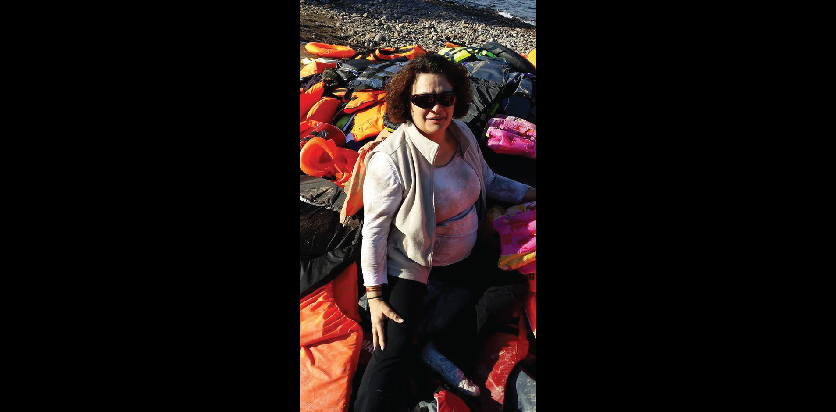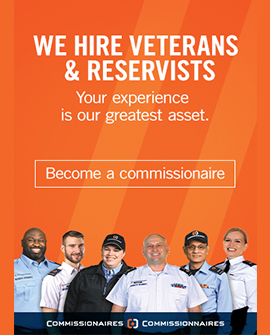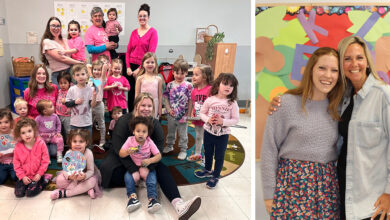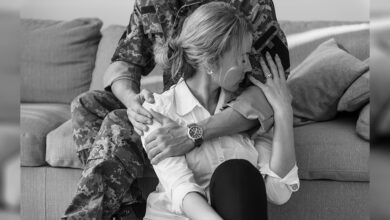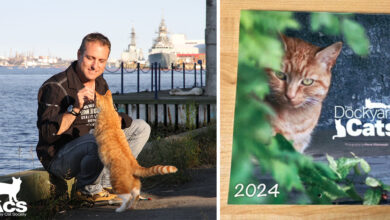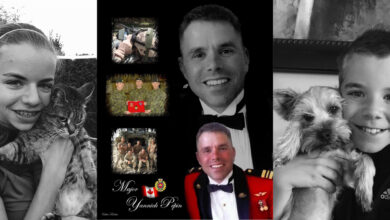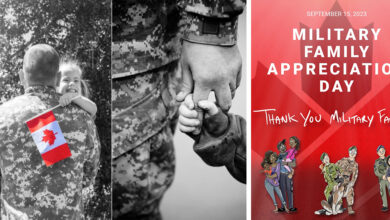CF Families
Military spouse and veteran continues to help refugees
Kara Kallenbach, a military spouse, and veteran, made it her mission to travel to the Greek island of Lesvos last November to help the masses of refugees. Though she had spent months researching and learning about the conditions, the overwhelming incidents and stories she heard during her one week stay were imprinted on her, leaving her determined to continue helping the refugees.
“The stuff that I heard from them is never in the news. The whole thing is such a humanitarian crisis. Some people are calling it World War III,” said Kallenbach.
Kallenbach, who currently resides in Germany with her husband serving in the CAF, finally found her calling when an acquaintance reached out, looking for volunteer counsellors. In late November Kallenbach traveled to the small Greek island to volunteer.
“They were so short staffed for volunteers they’re putting up tents trying to build winterized enclosures so the refugees didn’t have to sleep on the ground with just a sleeping bag. They had small three-man tents, and it just went as far as the eye could see up this hill, Afghan Hill, into the olive groves,” recalled Kallenbach.
During her stay, Kallenbach carried out a number of duties including working night shifts at Camp Moria, delivering clothes from the warehouses to camps and handing out warm, dry clothes to newly arriving refugees, if they had them in supply.
The camp was split into two factions: one with the legal Syrian refugees and the other, Kallenbach says, was a mix of refugees from around the world. Kallenbach worked on the side with the refugees from different parts of the world including Afghanistan, Pakistan and Morocco.
She would spend her night shifts in the camp interacting with the refugees and listening to their stories. One night she met a young Afghan man who had left behind his family to find a better life for them.
“He was showing me pictures of his wife and two-year-old daughter back in Afghanistan that he was hoping, hoping would survive through whatever is going on there so he could bring them over to Germany. He had a brother in Germany that he was trying to reach. And at that time, we all knew they weren’t letting refugees cross the border into Macedonia. So we’re all sitting there very sad, and we didn’t tell them that they weren’t going to be able to make it past the border,” remembered Kallenbach.
The military veteran and spouse says she received a lot of praise when people found out she was Canadian.
“It was very nice, actually, a lot of people were coming up to me when they found out I was Canadian saying: ‘Oh I’m so proud of Canada for taking in refugees. That’s so wonderful,” stated Kallenbach.
Depending on the night, the camps would contain anywhere from a few hundred refugees to a few thousand. Kallenbach explained, that typically, refugees remained on the island for a few days while their papers were processed through the UN and then continued their journey into Europe.
Looking back, Kallenbach says the experience was overwhelming but one she needed to have.
(Read Military spouse moved to help with refugee crisis in Greece)
“The second day I was driving I went to Camp Moria and drove right into the middle of it and got out of the truck and just looked around and just took it all in and it was probably 15 minutes before I could breath properly again because it was just so overwhelming. Just a mass of forlorn, sad people,”
To come to terms with what she witnessed each day, Kallenbach was grateful for her roommate, who was a volunteer from England. The two would spend the end of each day “debriefing.”
“We talked about everything we saw, how we dealt with it and we were able to just affirm that what we saw was real. That it wasn’t just some stupid movie. Yes, there were babies lying on the beach washed up, and we did see that. There’s a morgue of bodies washed up on the beach that haven’t been buried for nine months because there’s no place to bury them,” said Kallenbach.
All that she witnessed has stayed with the military spouse; especially the connections she made with mothers, being a mother herself.
“I wanted them to know that there are people out here in the world that do care about what’s happening to them,” mentioned Kallenbach.
There is no hesitation in her mind that she will continue to help the refugees pouring into the Western world in search for a better life. Her next goal is to visit the refugee camps in Calais, France.
Update: In the months since Kara Kallenbach first visited the island of Lesvos, and our interview with her, the veteran and military spouse has remained committed to helping refugees. She is a regional advisor for other Canadians wanting information or wanting to volunteer and is co-ordinating, online, the dispatch of supplies from warehouses to different camps around Lesvos. Kallenbach has also visited the camps in Callais, France twice and now has plans to go to Athens, Greece sometime this summer.
Above Photo: Kara sitting on life jackets that have been left on the shores of Lesvos.


